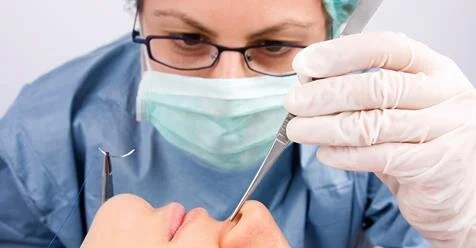Importance of Pre-Op Procedures Before Your Surgery
What should I do and what can I expect before the actual surgery on my nose?For the individual who has made the decision to finally do something about that deviated septum or the appearance of an enlarged or misshapen nose, it may come as somewhat of a surprise just how complicated surgery on the nose really is. Despite the fact that it is done on such a relatively small appendage, rhinoplasty or “nose job” is one of the more challenging of all cosmetic surgeries.The rhinoplasty surgeon must possess a very thorough understanding of, not only nasal anatomical structure but also facial aesthetics. Beyond training and experience, however, there is another aspect that is crucial to a successful outcome. The surgeon must spend the requisite time and energy needed in order to understand the patient’s motivation for the procedure. This is where the preoperative analysis in preparing for rhinoplasty surgery begins. This is also where the patient’s involvement is so important because building this relationship goes a long way toward improving patient satisfaction, reducing legal liability and overall better surgical outcomes.
- During the pre-op interview stage, the surgeon is seeking to determine:
- What is the patient’s perception of the structural or aesthetic defect?
- What are the patient’s expectations from the surgery?
- Are the patient’s goals and expectations realistic?
- Are the specifics techniques used by the surgeon the most appropriate for this situation?
- Does the patient have a clear understanding of what to realistically expect?
- Is this a patient that can be satisfied?
Once these questions are answered to the satisfaction of all parties, there will be the physical examination. This actually applies to overall condition as well as to the nose, specifically. The patient can then expect to have detailed photos taken from the six standard rhinoplasty views, frontal, right/left oblique, right/left lateral and basal. The more in-depth these pre-op procedures, the greater the surgeon’s ability to achieve the primary goal of this or any cosmetic surgery: a satisfied client, functionally and aesthetically.For the patient, there is also a list of things to do before surgery. These include instructions to:
- Stop smoking – smoke reduces blood flow to the tissues in your nose, resulting in poor or delayed wound healing, skin loss, scarring or infection.
- Stop taking aspirin, supplements and certain medications – can act as blood thinners, making surgery dangerous
- Arrange Your Post-Operative Care – someone to drive you home and stay to help for the first few days after your procedure
Clear motivations, reasonable and shared expectations between patient and surgeon, combined with thorough pre-op preparation will insure the best possible chance of success. This makes the pre-op stage an essential part of your procedure.If you are having health issues or are unhappy with the appearance of your nose, there will never be a better time to take the next step. Rhinoplasty has made a world of difference in the lives of thousands, and you could not make a better decision than consulting with Dr. Geoffrey Tobias, whose experience, compassion and dedication have combined to have him recognized 12 times as “best in his field” by New York Magazine. To request a consultation, simply click here.


